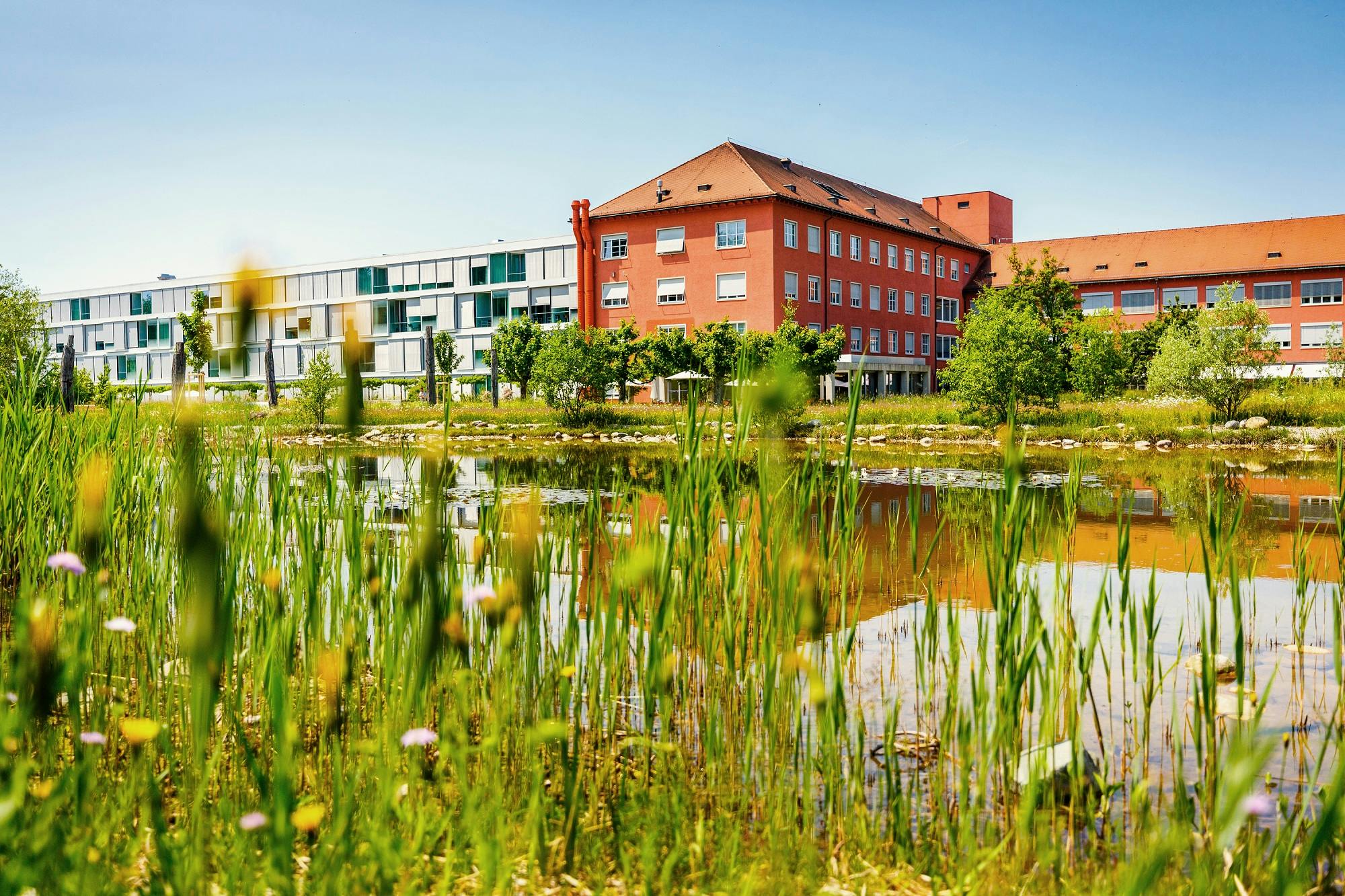BreastCentre Zurich
An important aspect for women affected by breast cancer is to know that they are not alone. Every year, over 6,000 women in Switzerland receive the same diagnosis. The course of the disease, the treatment and how they deal with their new circumstances are as individual as the women themselves: each has her own very personal story. Some of them are told here with the aim of showing solidarity, giving courage and supporting and accompanying others on their journey.
"Close your eyes and get through it" - How a diagnosis turns everyday life upside down.
When Sofie was diagnosed with inflammatory breast carcinoma, a rare form of breast cancer, at the age of 38, she had only one thing to do - close her eyes and get through it.
I saw an external change in the breast and suspected breast inflammation, which is why I went to see my gynaecologist. However, my gynaecologist already suspected breast cancer after the ultrasound and mammogram and referred me to a specialist for further investigations. As a trained medical assistant with experience in oncology, I suspected nothing good. The puncture and MRI confirmed my gynaecologist's suspicions and I was diagnosed with breast cancer.
Then everything happened very quickly. I went to see the breast cancer surgeon, Dr Federica Chiesa, at Swiss Breast Care to have a port inserted for the infusions. Chemotherapy started just one week after the diagnosis was made.
During this time, my family was a great support to me. My husband in particular did a lot of the work at home and looking after the children during chemotherapy. My mother and her partner, as well as my parents-in-law, also provided a great deal of relief. While my mum drove me to treatment, my mother-in-law often took our youngest daughter, Melia, to stay with her at the weekend.
We communicated cautiously with the children. We used children's books to explain the situation and the visual changes to Melia (almost four years old). With the two older children, we were able to talk more specifically about the effects of my illness and certain restrictions. In general, we tried to convey a sense of basic trust to our children: "Everything will be fine." This attitude has carried through the treatment and helped me to maintain my confidence and not to struggle with the situation, but to take it as it is. I often asked myself why it had hit me in particular and whether this was a death sentence. These fears will probably stay with me for the rest of my life, but I try not to complain for too long and just keep going with the motto "close your eyes and get on with it".
"My medical team took me seriously at all times, made difficult decisions for me with recommendations and guided me through the treatment process."
Dr Chiesa guided me during my treatment with clear recommendations and helped me make decisions when I was stuck. She gave me support in this uncertain situation. I felt that I was in good hands and supported by my medical team at all times.
After chemotherapy, I had surgery in February 2021 to remove and reconstruct my breast at the same time. Here, too, I was able to count on the support of Dr Chiesa, who clearly recommended Prof Dr Hisham Fansa for the breast reconstruction. He was the only person she would have operated on for breast reconstruction, which gave me the certainty that he was the right person for the operation.
The operation was successful and I didn't have much pain afterwards. My youngest daughter was soon able to climb on me again. Prof Fansa took me seriously at all times during the whole process and responded to my needs competently. He always gave me good information, showed me my options and helped me make decisions. Even at the weekend, he responded to my emails within a very short time and eased my uncertainties. The radiotherapy was also successful. Now I'm still having regular infusions, but they don't affect me much. The last operation will take place in October with Prof Fansa to align the right breast with the reconstructed left breast.
But first I'm going on a beach holiday with my family, which we're all really looking forward to. We were initially worried about planning the holiday, but nobody knows what will happen in a year's time. That's why we decided to go on holiday now and not put it off for too long. Everyday life and routine are slowly returning to our family and I'm getting back to my old self. I would also like to return to work at the beginning of 2022 - time will tell.
Plastic Surgery
Plastic Surgery Zollikerberg Hospital | Prof. Dr med Hisham Fansa and Dr Sora Linder
Trichtenhauserstrasse 20, 8125 Zollikerberg
Tel +41 44 397 38 60
Mail plast.chir@spitalzollikerberg.ch
Psycho-oncology
Centre for Mental Health | Dr med. Ruedi Schweizer
Trichtenhauserstrasse 12, 8125 Zollikerberg
Tel +41 44 397 38 50
Mail psychischegesundheit@spitalzollikerberg.ch
Radiology
- Radiology Zollikerberg Hospital | Dr Stephan A. Meier, MD
Trichtenhauserstrasse 20, 8125 Zollikerberg
Tel +41 44 397 23 11, Mail radiologie@spitalzollikerberg.ch - Medical Radiological Institute MRI Bethanien
Toblerstrasse 50, 8044
Tel +41 44 257 20 90, Mail bethanien@mri-roentgen.ch
Self-help
Cancer League Counselling and therapy, self-help groups
Freiestrasse 71, 8032 Zurich
Tel +41 44 388 55 00
Mail pbu@krebsligazuerich.ch
Social services
Social counselling at Zollikerberg Hospital | Claudia von Ow
Trichtenhauserstrasse 20, 8125 Zollikerberg
Tel +41 44 397 26 40
Mail sozialberatung@spitalzollikerberg.ch
Radiotherapy
Institute for Radiotherapy Zurich Hirslanden Clinic | PD Dr med. Günther Gruber
Witellikerstrasse 40, 8032 Zurich
Tel +41 44 387 25 50
Mail radiotherapie.hirslanden@hirslanden.ch
Pain Medicine
Pain Medicine Zurich | Dr med. Henner Niebergall
Trichtenhauserstrasse 12, 8125 Zollikerberg
Tel +41 43 499 24 20
Mail schmerzmedizin-zuerich@hin.ch
Contact / Registration
Monday to Friday:
8.00 - 16.00Standort Spital Zollikerberg
Fachärztezentrum Prisma
Trichtenhauserstrasse 12
8125 Zollikerberg


